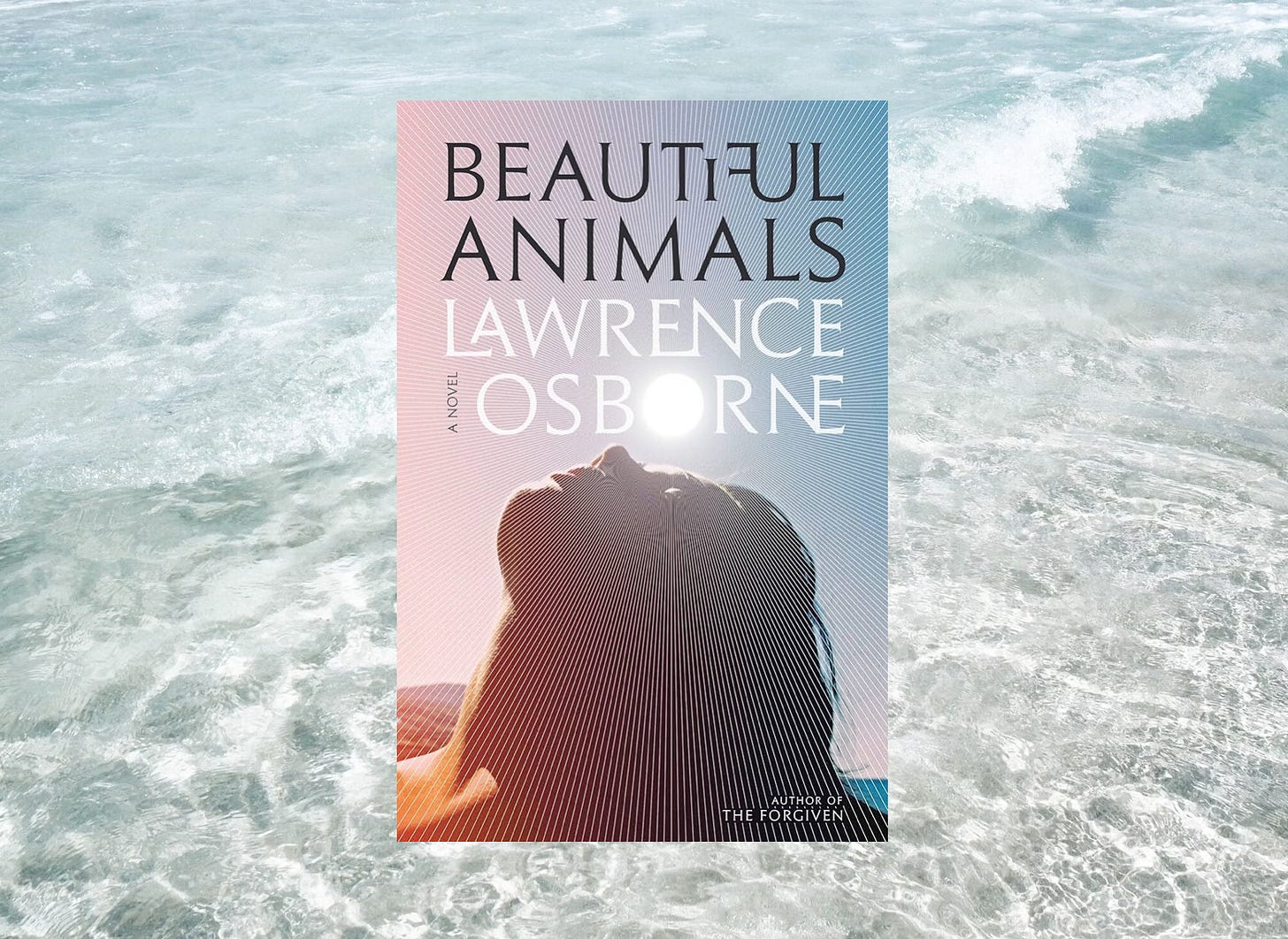There Are Too Many Books
All the books I read this month + How oligopoly and oversaturation are destroying the book market
I read three great novels in the last month. Paired with a brilliant book on the science of storytelling, I’ve been trying to learn about the human desire for plot beats, satisfying endings and heroes’ journeys. A common piece of writing advice is to write the book that you would love to read yourself, and I am a sucker for plot-driven novels full of twists and turns. But in thinking about my own novel, I’ve also been reflecting on the publishing industry as a whole, and in the second half of this post I’ve written about the uncomfortable conclusion I’m beginning to reach: The book market is oversaturated.
BOOK OF THE MONTH
Beautiful Animals by Lawrence Osborne
(Vintage, 2018)
My friends and I started a book club last month and this was our February pick, themed around ‘exotic getaways’ so we could escape the misery of late winter. Beautiful Animals definitely got the memo, set during a white hot summer on a Greek island where rich people go to play, this is a story about blind wealth, white saviours, manipulation, desperation and greed. When two young girls encounter a migrant stranger washed up on the shore, their plan to help him goes wrong and they all end up with blood on their hands. Sharp, evocative writing that left me reaching for a bowl of halkidikis and a shot of ouzo.
The Science of Storytelling by Will Storr
(HarperCollins, 2020)
One from my collection of how-to-write-a-book books, this not only offers insight into the psychology of storytelling and why humans have always loved stories, it also explores the five act story structure and loads of great ideas around creating good dialogue, strong characters and satisfying plots.
The Crossing Places by Elly Griffiths
(Quercus, 2016)
The first in a new series recommended to me by a fellow writer and murder-mystery-lover, this detective crime thriller takes place on the Norfolk marshlands with cool themes around archaeology, paganism and folklore. Upon finishing it, I immediately ordered the next one in the series.
The Wych Elm by Tana French
(Penguin, 2019)
Another recommendation from a friend, written with exceptional skill but also slightly more depressing. I like my stories dark but I am also a cosy Agatha Christie girl at heart, so if they end up being too bleak I tend to zone out. This was very good, though. I tried and failed to guess the ending.
There Are Too Many Books
How oligopoly and oversaturation are destroying the book market
I remember the first time I discovered that nature writing was ‘a thing’. I was studying for my MA in London, and one of our modules was about literature and the anthropocene, how climate breakdown, habitat loss and mass extinction was beginning to shape modern fiction. (It was more upbeat than it sounds, I promise.) I had always loved nature and always loved writing, but hadn’t realised I could explore both in the same medium until I discovered it was a genre all of its own. More specifically, I bought a copy of Meadowland by John Lewis-Stempel, a book about an English field as it changes through the seasons. It remains, to this day, one of my favourite books of all time, and sparked a foray into a whole area of literature I didn’t know existed.
This was still in the earlier days of the most recent resurgence of the ‘new nature writing’ wave, pioneered by authors like Melissa Harrison, Robert Macfarlane, Helen Macdonald and Mark Cocker. I found my ‘big’ writing break when my first book was published in 2018, around which time I got to meet other writers, perform at talks and events with them, and generally stay ahead of what was being published in the genre. Some of the highlights were being interviewed by Patrick Barkham for the Guardian and appearing on stage with John Lewis-Stempel at Crossing Borders Festival in the Hague. It felt like such an exciting time to be entering the world of publishing, and I’ll always look back on those years with huge joy and gratitude, particularly as I didn’t yet have an agent, and so was still dependent on the kindness and wisdom of my publishers and fellow writers to help me bumble into the next stage of my career.
Keep reading with a 7-day free trial
Subscribe to ANALOGUE by Tiffany Francis-Baker to keep reading this post and get 7 days of free access to the full post archives.



